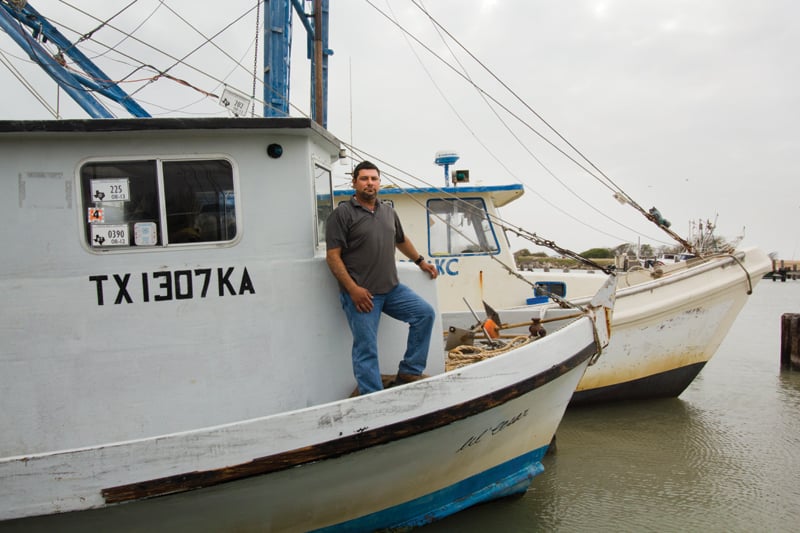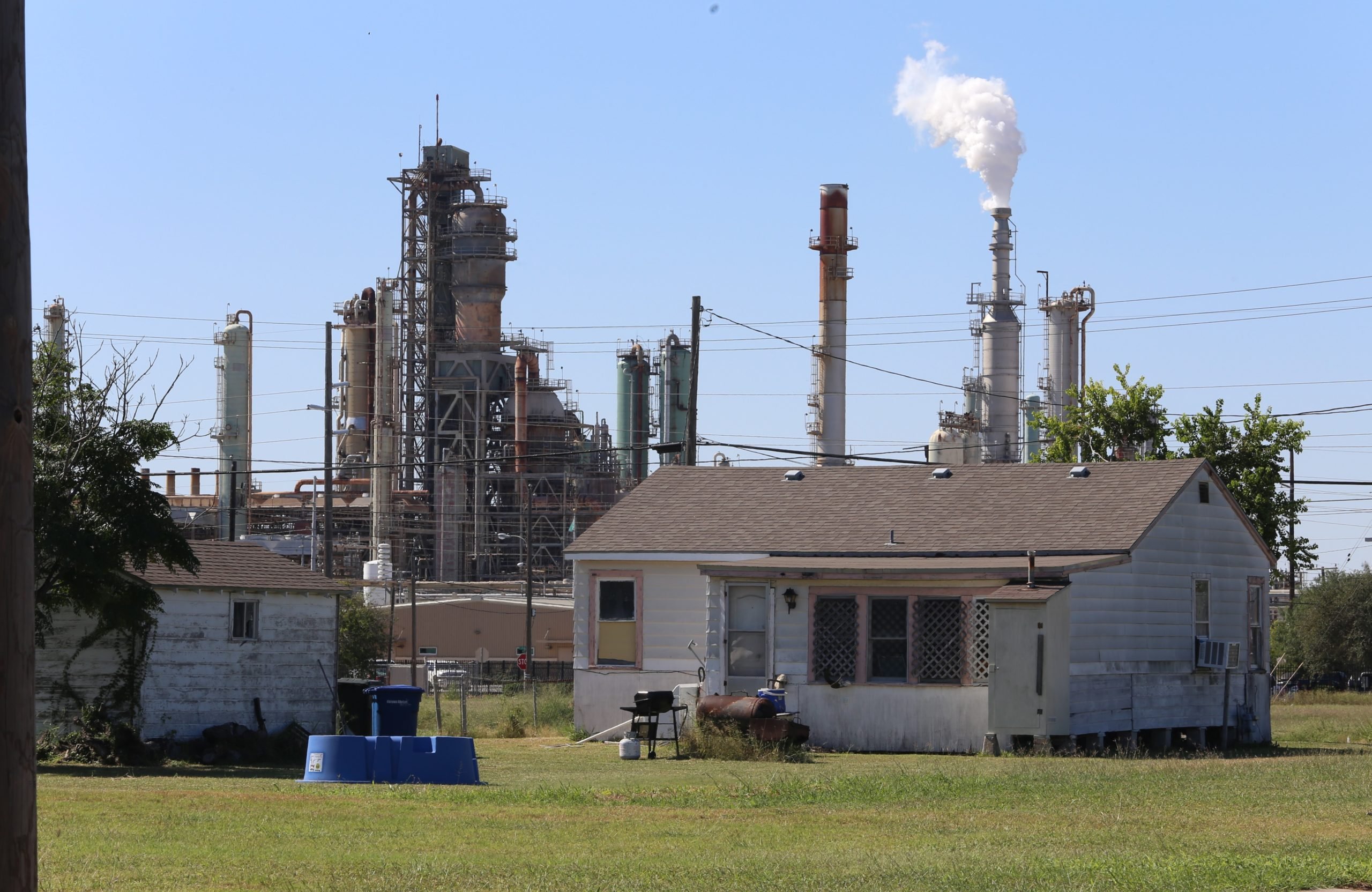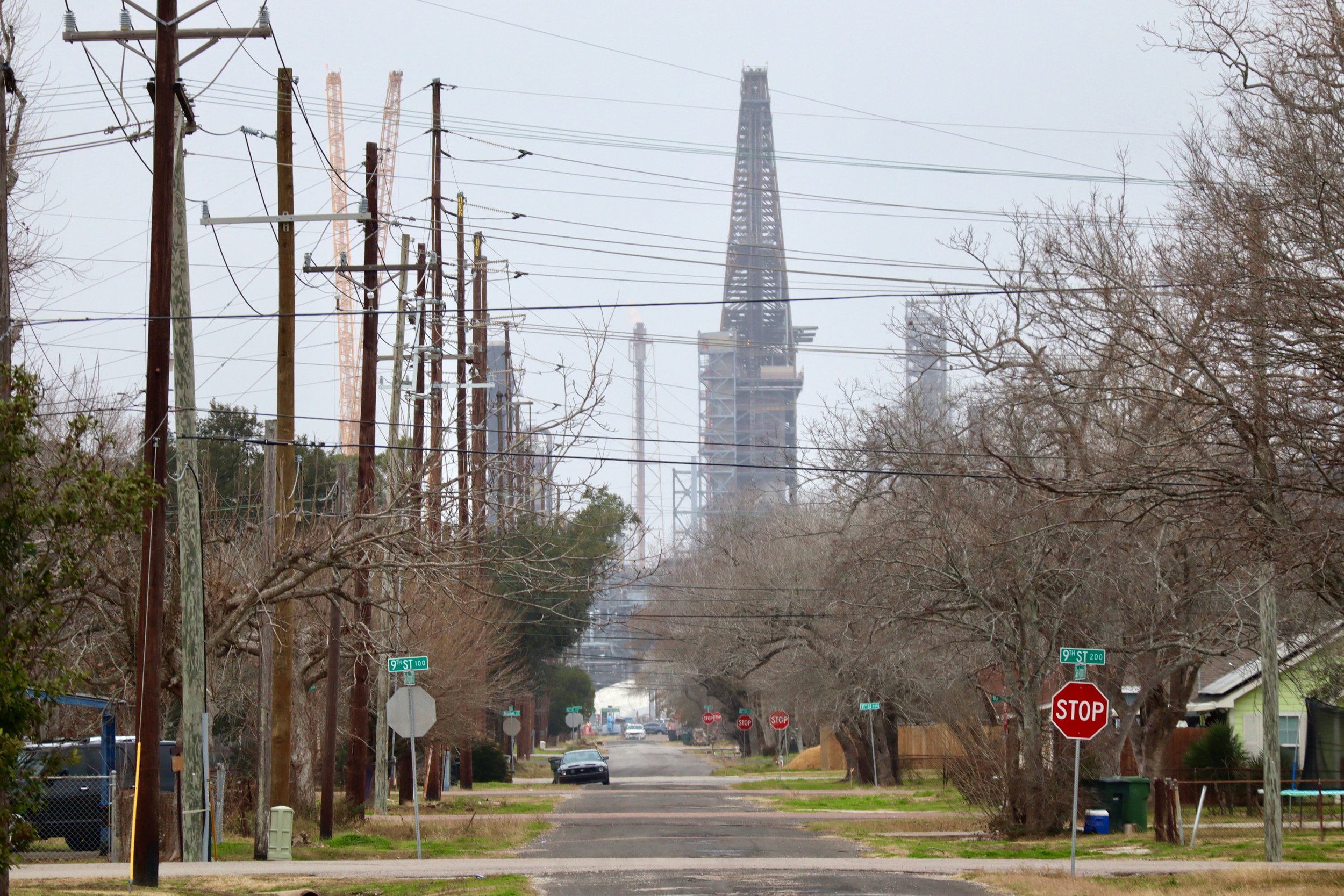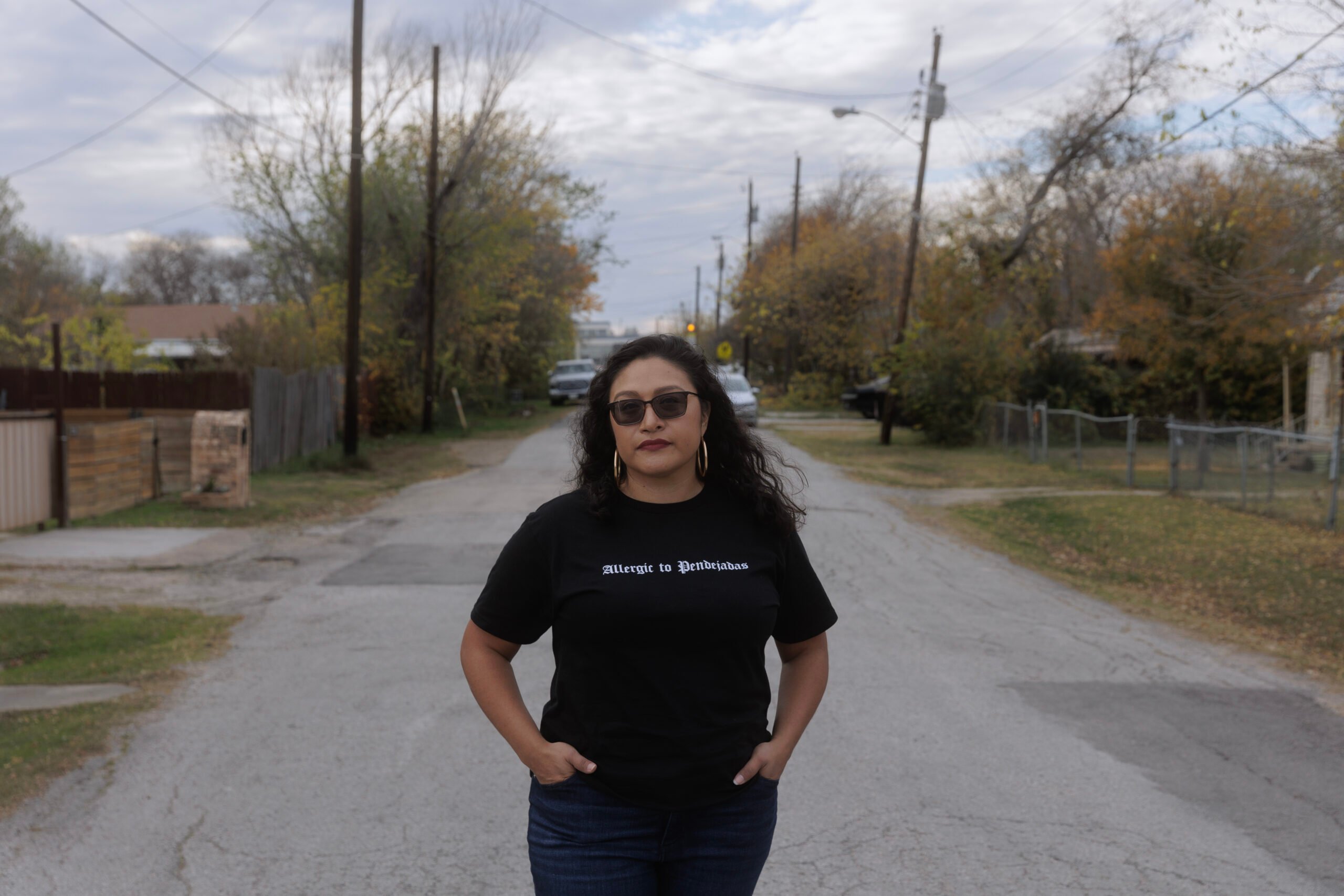
Direct Quote: Fishing For a Living On the Texas Coast
A version of this story ran in the March 2013 issue.
Above: Mauricio Blanco.
Mauricio Blanco, 42, came to the United States in 1990 as an undocumented teenager fleeing a civil war. Now a permanent resident, he’s made a life on the Texas coast as an oysterman, though drought and pollution make it harder to earn a living every year. “Still,” Blanco says, “I dreamed big, and now I have more than I can manage.”
“When I was 17, in El Salvador, there was a civil war. It was bad. The rebels would come for the young people, and the army would come for the young people. I didn’t want to be part of it, so I went to the United States. I hitchhiked, I worked. It took about a year. I was in Mexico nine months. I was good at soccer, so I joined a team and played for three months, but then I broke my foot so I went on to America. That was always the land of big dreams.
“I arrived on the Fourth of July, 1990. I was trying to come to Houston, and this couple picked me up, Bobby and Delmar Scott. They saw me on the road and I was young and skinny, like five-foot seven, 110 pounds. They saw my honesty and my needing to work. They were in their 40s. They took me to their home in Port Lavaca. It was a half-a-million-dollar home. My room was bigger than the one I got now. They didn’t speak any Spanish and I didn’t speak any English, but I learn. They put me to work at their bait shop and then as a deckhand on their boat. I learn so fast, I was running their boat a year later.
“Then it was time for them to sell the boat, so I bought my own boat with the money I saved. They’ve got an RV park now. I just watched the Super Bowl with them.
“Back then, fishing was the best money. A pound of shrimp was $5.25, and now we sell to the public for $2.80. A gallon of fuel was 35 cents. Now we pay $3.65. So you can see why it’s fewer and fewer boats here.
“You can still make about $50,000 a year, but that’s if nothing goes wrong. I lost half a season this year fixing a boat. In 2011, they closed the whole coast for three months because of red tide. That’s what happens when you don’t get no rain. We had red tide before, but there was always some bay you could go to if one of them was closed. That year the whole coast was closed. Louisiana was closed for two years because of Deepwater Horizon. Even after they clean the oil, you can see the film on the water.
“I think it’s pollution kills the oysters. Twenty-two years ago, the limit on oysters was 150 sacks a day. Those are 120-pound sacks. We usually made 150 sacks, not every day, but three or four days out of the week. We were in good shape. Then a couple years ago, the limit was 90 sacks. Now it’s 50 sacks. So now the price is a little better, there’s more market. But sometimes we struggle just to make 50 sacks. We’re fighting for survival.
“I get up at four, get a coffee somewhere. We meet at the dock about five, go out 5:30. Sometimes we drive the boat a couple hours before we’re somewhere we can fish. Half the time you don’t eat all day. I’m lucky, my wife usually packs me a few tacos. We have to stop at 3:30, come back in, drive home. Get home about six. I miss my family, but sometimes you have to go away from home to put food on the table. And that’s what we do. You work seven days. You don’t plan vacation days. Just, if the weather’s bad, you go to the mall.
“I always have this idea that the best years were the past times, but I’m so deep into this business. I got three boats. I got 12 people working for me. I’m a family man, got my wife, Veronica, and we got a kiddo, Cesar. Bills don’t stop. Oystermen, the only reason you stop working is you got a health problem. When I’m out there driving the boat, I’m just thinking about 50 sacks. Soon as I get 50 sacks, I can go home.”


